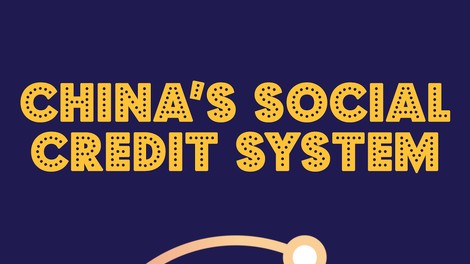Your podcast discovery platform
Curious minds select the most fascinating podcasts from around the world. Discover hand-piqd audio recommendations on your favorite topics.

piqer for: Boom and bust Global finds
I am a Dutch journalist, writer and photographer and cover topics such as human rights, poverty, migration, environmental issues, culture and business. I’m currently based in The Hague, The Netherlands, and frequently travel to other parts of the world. I have also lived in Tunisia, Egypt, Kuwait and Dubai.
My work has been published by Al Jazeera English, BBC, The Atlantic's CityLab, Vice, Deutsche Welle, Middle East Eye, The Sydney Morning Herald, and many Dutch and Belgian publications.
I hold an MA in Arabic Languages and Cultures from Radboud University Nijmegen and a post-Master degree in Journalism from Erasmus University Rotterdam. What I love most about my work is the opportunities I get to ask loads of questions. Email: [email protected]
The Consequences Of China’s Social Credit System
A 32-year-old IT engineer from the east coast of China tells us how dangerous it used to be to cross the street in his city. “Now after the changes have happened, the cars will wait for you.”
He is referring to China’s new social credit score. In this podcast, you can hear more details about it and some examples of what it means to Chinese people in practice. A few cities are now running pilots and the plan is to implement the system countrywide in 2020.
Right now, China doesn’t have a traditional credit score and this is causing some problems like people not paying back loans. China’s social credit score will measure whether or not you paid back your loans, but the Chinese government also collects data of what people buy and it includes behaviour as well.
If you’re not giving way to people who are crossing the traffic lights, your points will get deducted.
If you have a fight with your neighbours or don’t clean up after your dog, your score goes down. If you give to charity, it goes up. You start with 1000 points. There is a letter grade system behind these points. If you have less than 600 points, you are a D and you are labelled an untrustworthy citizen.
The makers of the podcast also speak to a man who has experienced the consequences of the system. This 42-year-old used to work in the coal industry, but went bankrupt a few years ago. He couldn’t pay back his debts and ended up on the country’s blacklist.
He soon found out this meant his bank accounts had been frozen, and he couldn’t book a ticket for a high-speed train, a plane or a room in a luxury hotel. One day he saw his face on one of the big electronic billboards in the centre of town with the words: “This man is untrustworthy”.
